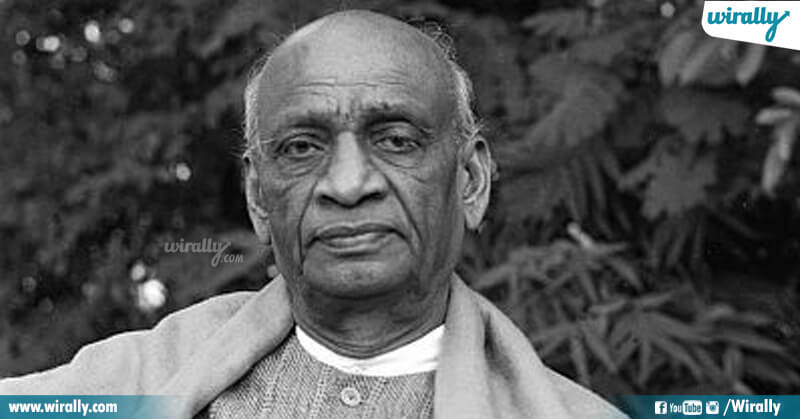Indian is known for its countless struggles where many freedom fighters for the freedom of the country put their lives on the line to liberate the country and the people from the rule of British. Their contributions made to the country is boundless and will always be cherished and their legacy will be carried forward. A struggles is strugggle no matter what and there is no particular order to place these heroes who fought their way to free this country from the laws of British. In this article we present you with the Freedom Fighters of India.
1. Sardar Vallabhbhaipatel

Sardar Vallabhbhai Patel who was born in 1875 earned his name ‘Sardar’ after his brave contribution to Bardoli Satyagraha. Sarada Patel who was originally a lawyer withdrew his position and joined the freedom fighters to represent India against British rule. He is called Bismarck ‘Iron Man’ of India because of his brave and heroic contributions to the country. Soon after the Independence, Sardar Patel became the Deputy CM of India and dedicated himself to interstate the princely states into the Union India.
2. Mahatma Gandhi
Born on 2nd October, 1869, Mohandas Karamchand Gandhi also known as the Father of the Nation. His contribution to make the country free from British rule is boundless. Armed with nothing but truth and the ideals of Non-Violence, he led the Indian masses towards independence. Gandhi ji coined the term ‘Harijan’ – children of God for the untouchable community and advocated for them to be included in the freedom struggle. For the welfare of the nation, he also fought for equality among The Indian masses divided by caste, community and classes. His birthday 2nd October is celebrated as Gandhi Jayanthi, a National holiday and worldwide as International day of Non-Violence.
3. Bal Gangadhar Tilak
Born on 23rd July 1856, Bal Gangadhar Tilak originally known as Keshav Gangadhar Tilak who is also one of the Freedom Fighters played an impossible role for India’s Independence. He was a Lawyer, a Journalist, a Social Reformer, a Teacher and an Indian Nationalist. He was indeed the first leader of the Indian Independence and British Colonial authorities called him the ‘Father of the Indian Unrest’. People gave him an honorary title Lokmanya’ which translates to accepted by people as a leader. He created a slogan during a protest against the British – ‘Swaraj is my BirthRight and I shall have it’. Being a strong vocal advocate of Swaraj and was against Mahatma Gandhi’s policy of total ahimsa, Bal Gangadhar Tilak did not go in terms with Gandhi in achieving the Independence.
4. Shaheed Bhagat Singh
A Rebellious Nationalist, Bhagat Singh became a folk hero in the Nationalist Struggle. Bhagat Singh born on 27 September 1907 was an Indian Freedom fighter and a Socialist considered one of the most influential revolutionaries of the Indian Independence movement. Singh was born into a Sikh family who had earlier been involved in revolutionary activities against British Rule. Bhagat Singh wanted to take revenge for police killing Lal Lajpat Rai and he became involved in the murder of British Police officer John Saunders. His Life came to an end when he was hanged at the age of 23 along with Rajguru and Sukhdev. He was considered a revered hero and one of the best freedom fighters in India.
5. Jawaharlal Nehru
Born on 17 November 1889, Jawaharlal Nehru was the first Prime Minister of India and played an essential role in Indian Politics in the 20th Century. He emerged as the most important leader of the Indian Indepence Movement under the leadership or say guardianship of Gandhiji and ruled India from its establishment as an Independent Nation in 1947. Since he adored children he was called Chacha Nehru and his birthday is celebrated as Children’s Day.
6. Lal Bahadur Shastri
Born on 2 October 1904, Lal Bahadur Shastri was an Indian Statesman who received the title ‘Shastri’ after he completed his study at Kashi Vidyapeeth. Shastri participated in the Quit India Movement, Salt Satyagraha Movement led by Mahatma Gandhi. He also promoted White Revolution – a national campaign to increase the production and supply of milk. He has been to jail and spent many years there. After Independence he became Home Minister and later became Prime Minister of India in 1964. His struggles to bring Indian independence is heroic and will always be remembered.
7. Subhash Chandra Bose
Born on 23 January 1897, Subhash Chandra Bose popularly known as ‘Netaji Subhash Chandra Bose’ was an Indian Nationalist and whose defiant patriotism made him a hero in India. He joined the Indian National Congress and was a part of the Civil Disobedience Movement. In 1943, He joined the Indian National Army to free India from British Rule. The title ‘Netaji’ was given to Subhash Chandra Bose by the German and Indian Officials at the special Bureau of India in Berlin. He believed that military strength was required for India to win its Independence.
8. Dr. Bhimrao Ambedkar
Born on 14 April, Ambedkar was popularly known as Babasaheb. He was an Indian social reformer, politician, economic and Jurist who inspired the modern Buddhist movement and campaigned against social discrimination against untouchables known as Dalits, Labourers and Women. His reputation as a scholar led to his appointment as free India’s first law minister and chairman of the committee for drafting the constitution of India. He believed in Individual Freedom and criticised the caste society. His contribution to the Independence of India will also be remembered.
9. Chandra Shekhar Azad
Born on 23 July, 1906, an Indian Revolutionary who became an inseparable part of the freedom struggle when he joined the Non-Cooperation Movement. Azad has pledged to liberate the country from the rule of the British. He became an active member of the Hindustan Republican Association. He died fighting the British Police at Azad park. He shot himself to keep the police from capturing him alive.